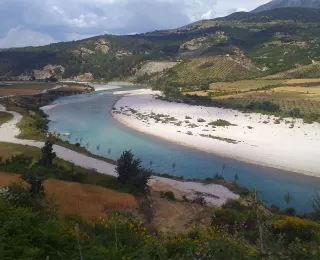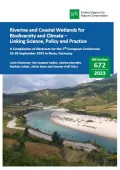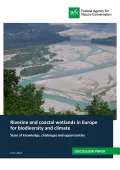European Conference on Biodiversity and Climate Change

"Nature conservation and climate protection must go hand in hand," explained Thomas Graner, Vice President of the German Federal Agency for Nature Conservation (BfN), who opens the conference. "That's why we are committed to nature-based solutions that benefit everyone: People, nature and climate. The conservation and restoration of riverine floodplains and coastal wetlands enable such win-win-win scenarios. After all, wetlands not only provide habitat for numerous species of animals and plants, they also store carbon, mitigate droughts, contribute to flood and coastal protection, and are a key component of our natural livelihoods."
"There is an urgent need for action to halt the decline of wetlands in Europe and strengthen their resilience to climate change," said floodplain ecologist Mathias Scholz from the Helmholtz Centre for Environmental Research (UFZ). "For this, we need to pull out all the stops: Policy reform, changes in land use and large-scale implementation of restoration measures across Europe are needed. In doing so, it is crucial that we consistently involve all affected stakeholders." Scholz is co-author of a background paper recently published by an international team of scientists for the conference, which takes an in-depth look at the role of riverine floodplains and coastal wetlands for biodiversity conservation, climate change mitigation and climate change adaptation in Europe.
The European technical conference, entitled "Riverine and Coastal Wetlands for Biodiversity and Climate," is being co-hosted by BfN and the Network of European Nature Conservation Agencies (ENCA), in close cooperation with the Helmholtz Centre for Environmental Research (UFZ), the German Centre for Integrative Biodiversity Research (iDiv) and adelphi. The conference recommendations will be published at the end of the year in the form of "ENCA Recommendations".
Background
The current conference is the fifth event in the series "European Expert Conferences on Biodiversity and Climate Change", which has been organized by BfN and the ENCA network since 2011 with changing thematic foci.
Riverine floodplains and coastal wetlands are vital ecosystems for nature and people, making crucial contributions to climate change mitigation and adaptation. They are considered biodiversity hotspots and provide indispensable ecosystem services such as climate regulation, carbon sequestration, flood control, water filtration, food supply, and recreational opportunities.
However, globally, inland and coastal wetlands have declined dramatically, by 35 percent between 1970 and 2015. In Germany, only 9 percent of active riverine floodplains are in a near-natural and ecologically functional state. BfN supports the restoration of these valuable ecosystems in Germany, among other things, through the floodplain funding of Germany’s Blue Belt Programme, through large-scale nature conservation projects in the chance.natur funding programme, and as the director of the new Action Programme for Natural Climate Protection.

